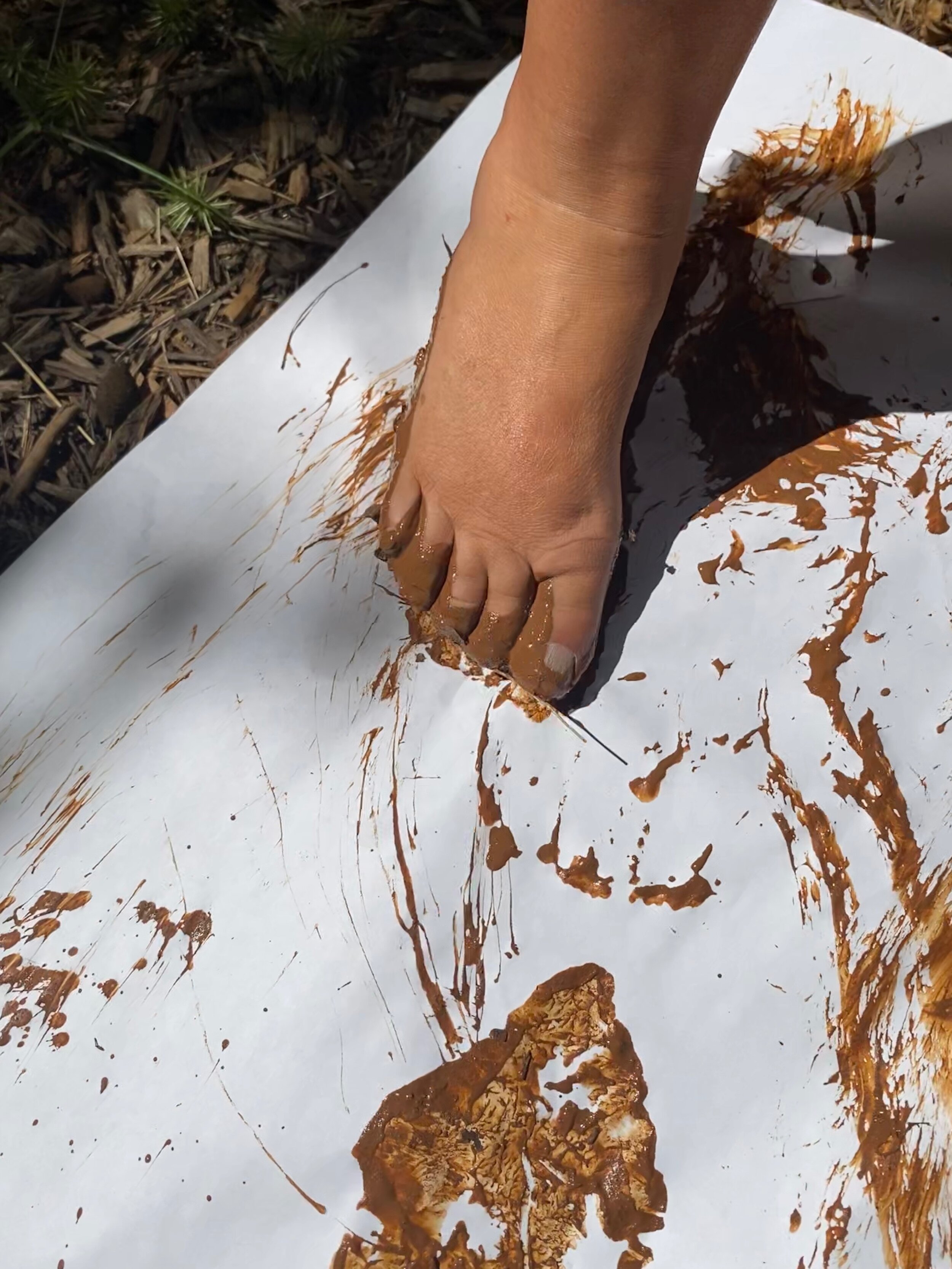Mud Painting
Getting ready to paint:
Be sure to have goopy globby mud available, then-
Decide HOW you want to paint
Decide WHAT you want to paint


Use your fingers or whole hands to paint with mud. Perhaps practice counting how many fingers showed up in the mud paint.

Add food coloring or powder paint to experiment with color mixing in a natural way.

Squish your feet in mud and use your feet to paint messy and creatively.

Use toys like a toy car or toy animals to paint with. Some kids need help connecting to nature and a beloved toy can help!

Use a homemade paintbrush to paint to practice those fine motor skills!

Using paper to see the mud designs clearly, allows children to be more precise with their movements (*add powder paint, chalk, or food dye to color your mud paint)

Painting mud on trees allows for larger hand movements that strengthen hand muscles and help develop the pincer grasp (which is critical for learning how to write).

Paint your body with mud to enjoy the sensory experience of the cooling gooey mud on a hot day. This can lead to interesting conversations about how animals use mud on their bodies too!

Painting on a toy allows for imaginative play to rethink the toy’s “original” use.

Sometimes cleaning the toys is even more fun than painting them! This helps teach children a sense of responsibility/ownership over their toys.
Subscribe for access to all our downloadable PDFs for free

